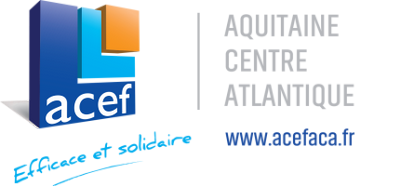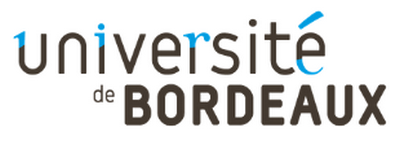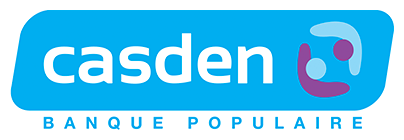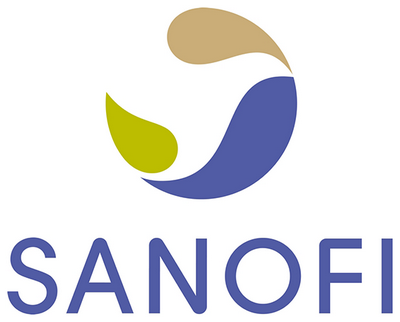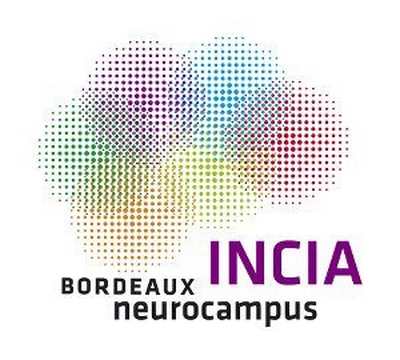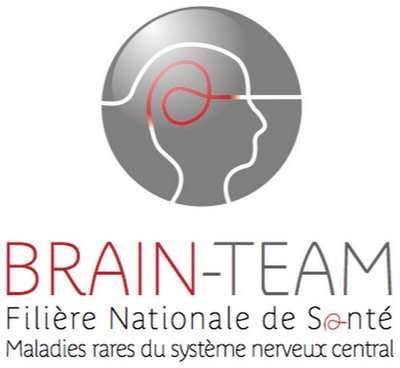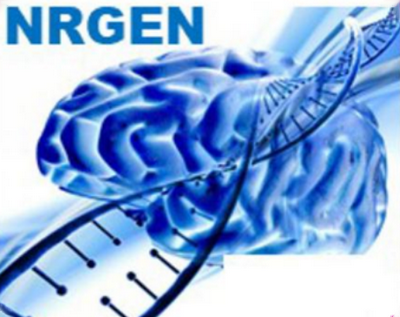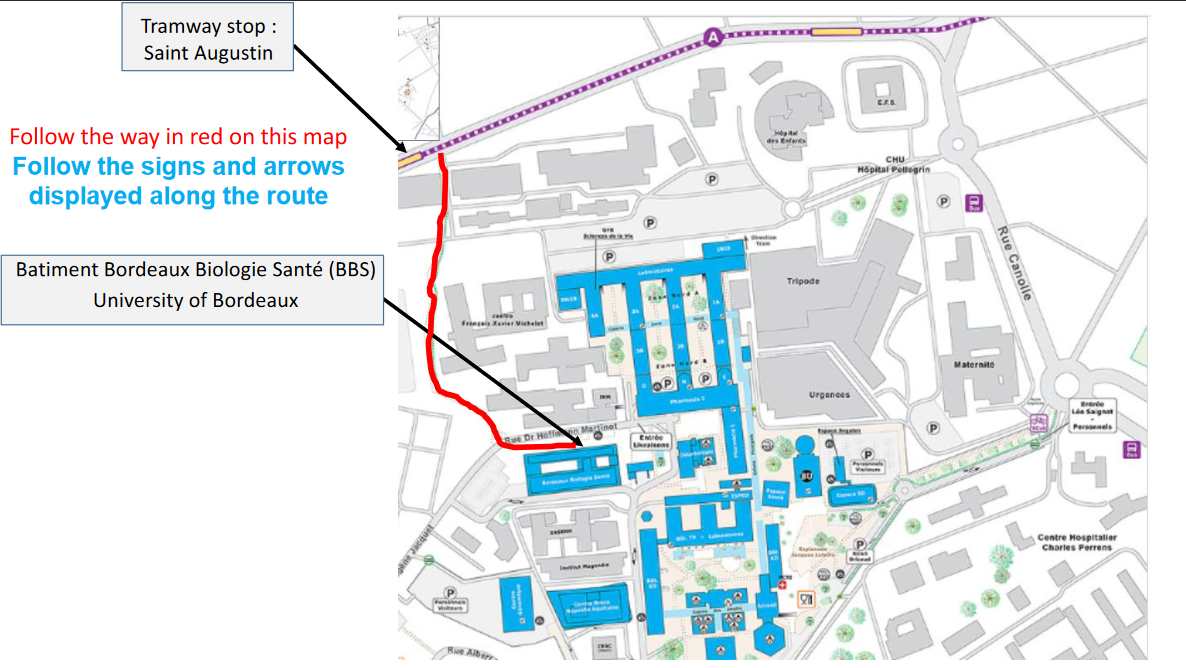Third BPAN disease symposium in France
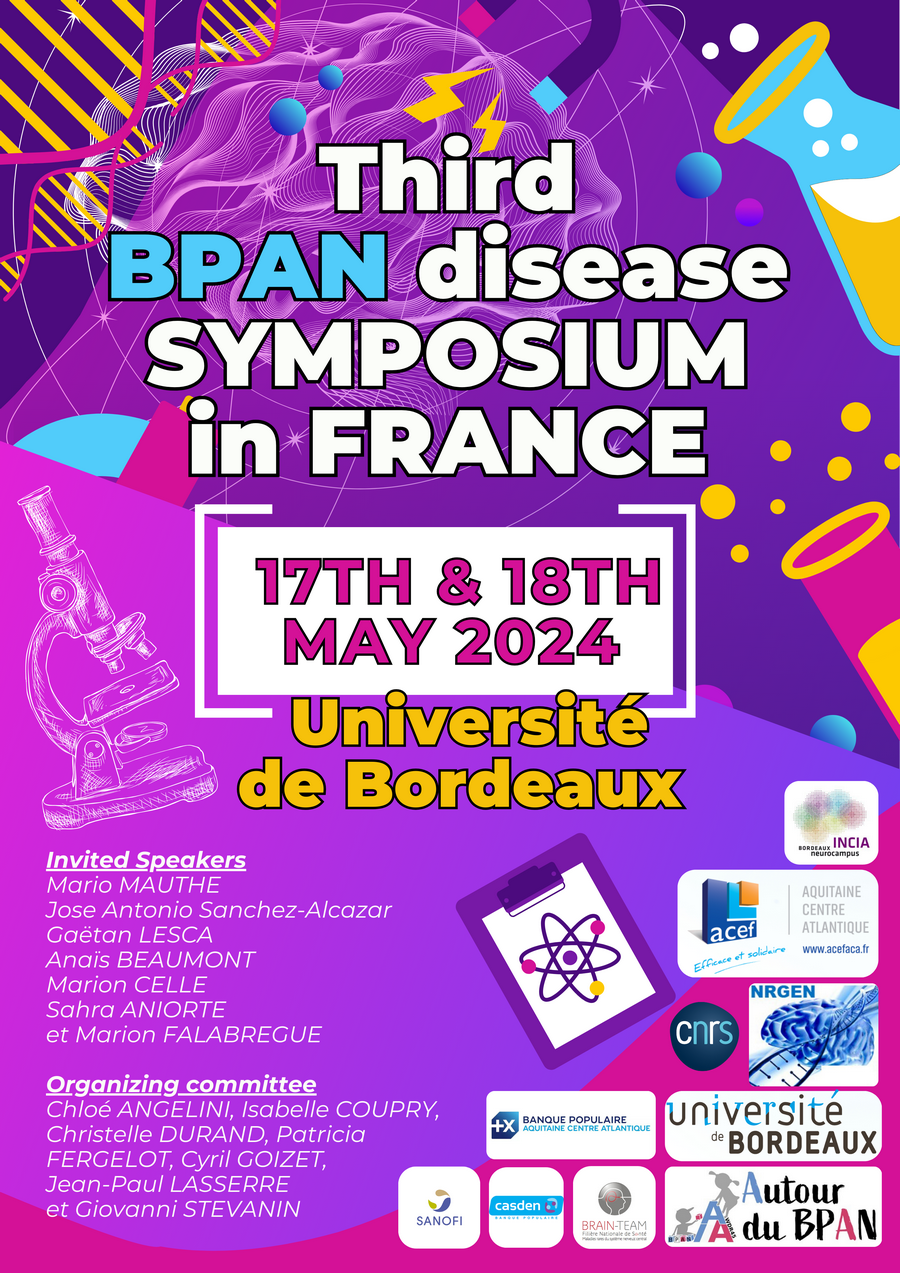
Third BPAN disease symposium in France
The University of Bordeaux, the Association Autour du BPAN gather to organize the third symposium on BPAN disease in Bordeaux, France. This international symposium will bring together patient organization, scientific and medical experts to share the latest research in the field and to foster networking opportunities on BPAN disease research.
Invited Speakers
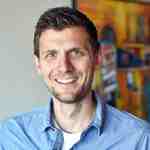
Dr Mario Mauthe
University of Groningen, Netherland
Dr. Mario Mauthe is a senior scientist at the Department of Biomedical Sciences of Cells and Systems at the University Medical Center in Groningen, the Netherlands. His research focus lies in the mechanism and regulation of autophagy under physiological and pathological conditions. He is specifically interested in the relevance of autophagy in neurodegenerative diseases. He obtained his PhD at the University of Tuebingen, Germany on studying the role of WIPI1 and WIPI2 in the regulation of autophagy. Afterwards he joined the laboratory of Prof. Reggiori in the Netherlands. His research now focuses on understanding the contribution of autophagy, in particular the WIPI proteins, in specific pathologies. Because WDR45/WIPI4 belongs to the WIPI protein family and is associated with BPAN, he is now focusing his research on this disease to exploit autophagy as a potential treatment venue for BPAN. Furthermore, he is studying at the molecular level how autophagy, and more specifically a selective type of autophagy called aggrephagy, contributes to the clearance of protein aggregates, a hallmark of numerous neurodegenerative disorders.
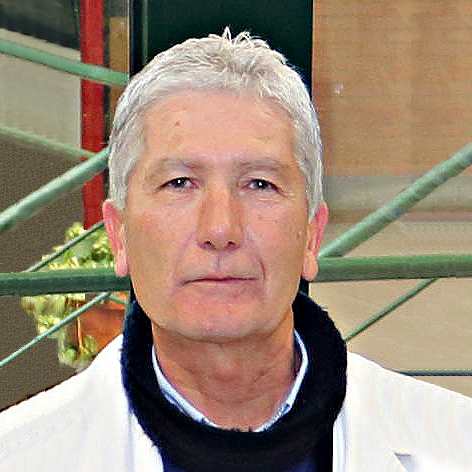
Dr José Antonio Sánchez-Alcázar
Centro Andaluz de Biología del Desarrollo(CABD)-CSIC, Universidad Pablo de Olavide, Sevilla (Spain)
José Antonio Sánchez Alcázar (Bachelor of Biology and Medicine, PhD in Medicine, and Clinical Biochemist) is Full Professor at the Pablo de Olavide University and principal investigator at the Andalusian Center for Development Biology (CABD). His group is specialized in Cell Biology techniques, with extensive experience in cellular physiopathology and search for treatments in rare genetic diseases, and particularly neurodegenerative diseases.
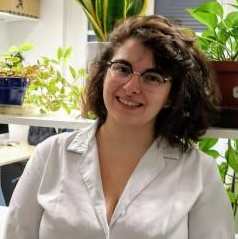
Marion Celle
Laboratory of Biology and Modelling of the Cell – CNRS : UMR5239, INSERM U2110, Université de Lyon, ENS de Lyon, UMS344 Biosciences Lyon Gerland, France
Marion Celle joined Bertrand Mollereau's team as a research engineer following her master's degree in "Genetics and Pathology of the Cell". She is interested in neurodegeneration associated with dysregulation of autophagy. She worked on the establishment and characterization of the Drosophila model of BPAN, a rare neurodegenerative disease and is now seeking to understand its underlying mechanisms.
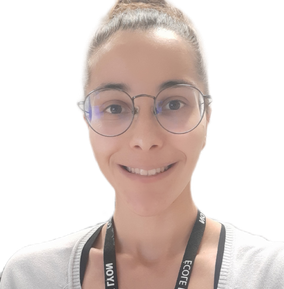
Sahra Aniorte
Laboratory of Biology and Modelling of the Cell – CNRS : UMR5239, INSERM U2110, Université de Lyon, ENS de Lyon, UMS344 Biosciences Lyon Gerland, France
Sahra Aniorte is a PhD student in Bertrand Mollereau’s team at LBMC (Lyon). During her pharmacy studies in Toulouse, she focused on research, undertaking internships in which she participated in the optimisation of a bacterial genotyping technique (IFB Purpan), studying the DNM2 gene in congenital myopathies (IGBMC), and characterizing a fusion transcript expressed in endometrial sarcomas (CRCL). After graduating from the Genetics and Epigenetics Master 2 at Sorbonne University, Sahra
is now studying BPAN disease, a rare neurodegenerative disorder associated to WDR45 mutations, and its impact on autophagy and epilepsy-like phenotype in a drosophila melanogaster model.
is now studying BPAN disease, a rare neurodegenerative disorder associated to WDR45 mutations, and its impact on autophagy and epilepsy-like phenotype in a drosophila melanogaster model.
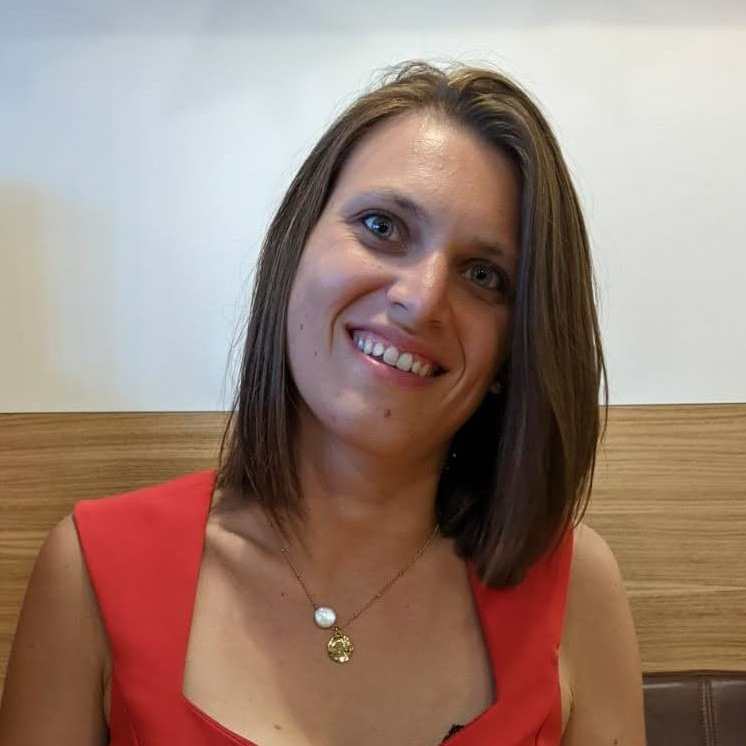
Dr Marion Falabregue
INSERM U1016, Institut Cochin, Institut National de la Santé et de la Recherche Médicale, Centre National de la Recherche Scientifique, Paris, France
In 2017, I started my thesis under the supervision of Dr. Francine Côté and Dr. Philippe Noirez on the role of serotonin on iron absorption. During my PhD, Francine and I collaborated with chemist Raphaël Rodriguez, who developed serotonin derivatives as a therapeutic tool to treat iron overload diseases. Subsequently, in 2021, I started my post-doctoral fellowship in Dr. Carole Peyssonnaux's "iron and immunity" team at the Cochin Institute, where I worked on nutritional immunity in the response to persistent enterobacterial infections in patients with Crohn's disease. Finally, since 2017, I have been working on iron (iron overload disease, erythropoiesis and nutritional immunity). Today, thanks to the close-knit group formed by Francine, I continue some of these projects in parallel, in particular the development of serotonin derivatives.
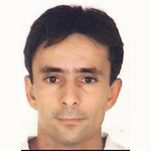
Dr Jean-Paul Lasserre
MCU, University of Bordeaux, College of Health Science, Translational research on neurogenetic diseases (NRGEN), INCIA, Bordeaux, France
As a graduate student at Bordeaux University, Dr Jean-Paul Lasserre showed the existence of a second DNA polymerase in yeast mitochondria (using affinity chromatography). During several post-doctoral studies in Paris and Luxembourg, he became an expert in proteomics and developed new methodologies for whole cell protein complexes isolation, which he exploited to measure the effects of pesticides and PCB on human cell. Ten years ago, he was recruited as a permanent Assistant Professor at the faculty of Pharmacy of Bordeaux University, and affiliated to the research group at the Institute of Cellular Genetics and Biochemistry (IBGC), a worldwide-recognized research center on mitochondria often referred to as the French School of Bioenergetics. In this group, his research activities were totally dedicated to the study of mitochondrial disease using yeast as a model system with a strong focus on the Barth Syndrome. he wrote a comprehensive review on this topic that was published in Disease Models and Mechanisms and two articles published in Microbial Cell and Disease Models and Mechanisms. he supervised a PhD student (De Taffin De Tilques Maxence), supported by the French Ministry of Education and Research, whose work was entirely dedicated to the study of the Barth Syndrome and the search of potential therapeutic pathways (2014-2017). In 2018, he changed and he joined the INSERM U1211 team (MRGM : Rare Disease, Genetic and Metabolism). He has been recruited as expert of yeast-based pharmacological studies for develop the yeast model for mitochondrial disease as BPAN. Since 2019, with the support of Autour du BPAN association, he continue to work on the BPAN pathologie and recently (since 2022), he followed the clinicians and they have joined the INCIA (Institut de Neurosciences Cognitives et Intégratives d'Aquitaine).
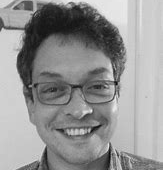
Pr Gaetan Lesca
Institut NeuroMyoGene PNMG, CNRS UMR5310, INSERM U1217, Université Claude Bernard Lyon 1, Lyon, France
Gaëtan Lesca is a professor of medical genetics (PU-PH) at the Hospices Civils de Lyon and at the Claude Bernard Lyon 1 University. Diploma of Specialized Studies in medical genetics, with an orientation in the field of neurology and neuropediatrics, he was a university hospital assistant then MCU-PH in the medical genetics department of the HCL. For more than 20 years, he has been developing genetic tests for the diagnosis of neurodevelopmental disorders and in particular monogenic epilepsies. He also provides consultations and will take over the coordination of the competence center for rare genetic diseases of the nervous system at the Hospices Civils de Lyon. In the field of research, Prof. Lesca has contributed to the identification of genes involved in epilepsy and other neurodevelopmental disorders and is a member of the "metabolism and neuronal development" research team (Dr. Julien Courchet), Laboratoire Physiopathologie et Génétique du Neurone et du Muscle, Institut Neuromyogène, CNRS UMR 5261 -INSERM U1315, Université Claude Bernard Lyon 1.
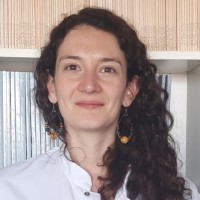
Chloé Angelini
Geneticist, University of Bordeaux, College of Health Science, Bordeaux, France
Dr. Chloé Angelini is a geneticist in the reference center rare diseases - neurogenetics since November 2022, and performs the molecular diagnosis of Neurodegenerations with Brain lron Accumulation, via the panel of the 9 main genes of NBIA or via the interpretation of genomes made on the Auragen platform. His medical thesis and his Master 2 in neuroscience focused on NBIA, with support from the association Autour du BPAN for research work conducted on the characterization of iron accumulation mechanisms.
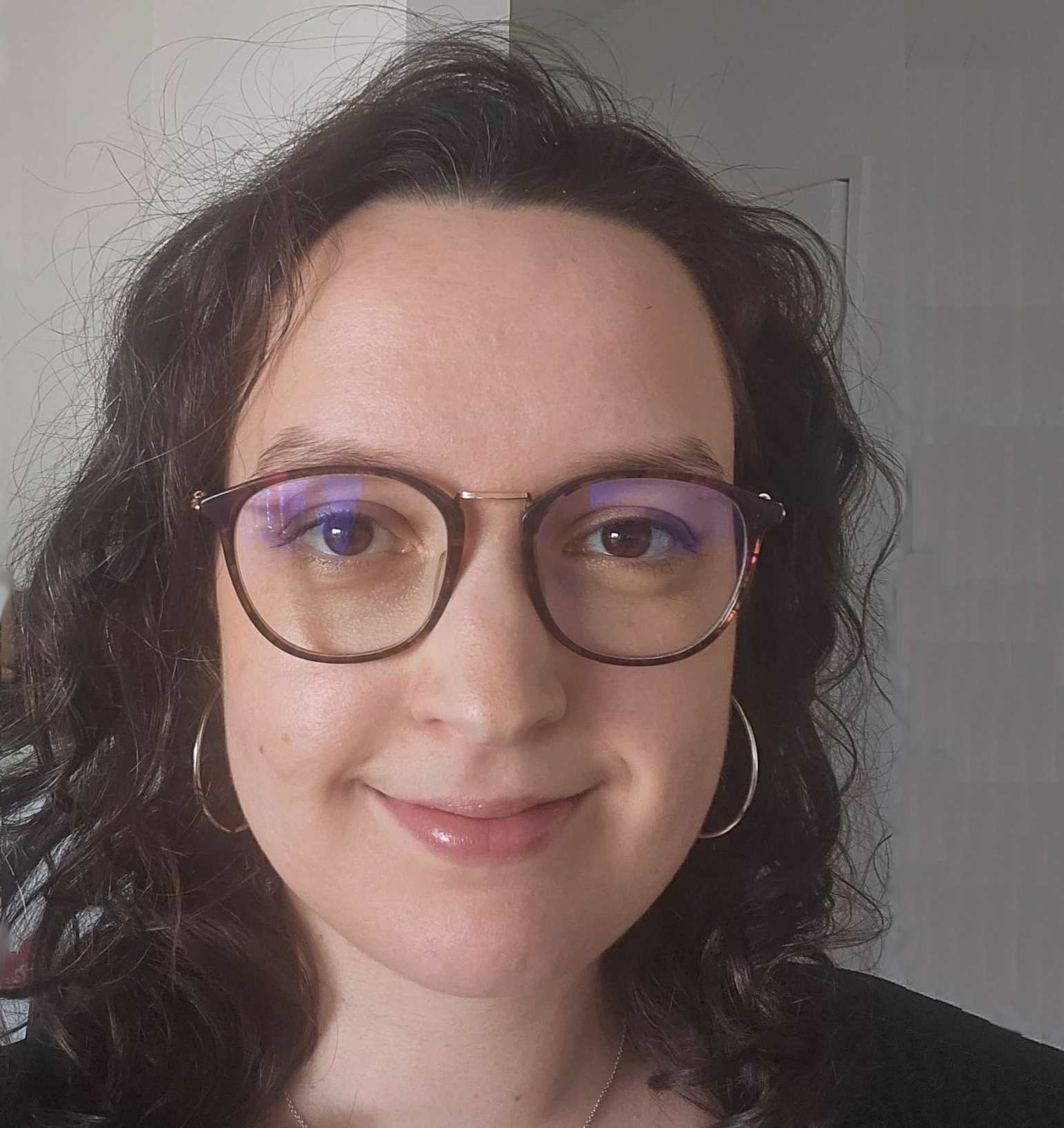
Anaïs Beaumont
Institut NeuroMyoGene PNMG, CNRS UMR5310, INSERM U1217, Université Claude Bernard Lyon 1, Lyon, France
Clinical research associate, for more than 2 years, involved in projects in neuro-oncology, pediatric epilepsy and epilepsy genetics. This position allows me to get involved in neuroscience research with the aim of deepening my knowledge while exploring the brain in its healthy and pathological functioning.
Organizing Committee
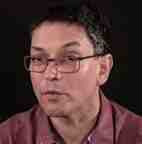
Chloé Angelini
Geneticist, University of Bordeaux, College of Health Science
Member of the scientific council of the association Autour du BPAN, Professor Gaëtan LESCA is a geneticist at the Hospices Civils de Lyon and professor of genetics at the Lyon Est faculty (Université Claude Bernard Lyon 1). It is involved in the genetic diagnosis of neurodevelopment disorders and in particular epilepsies, brain malformations and intellectual disabilities. He also carries out research activities at the CHU and within the NeuroMyoGène Institute. He has contributed to the identification of several genes involved in these diseases and to numerous works on the characterization of genotype-phenotype correlations.
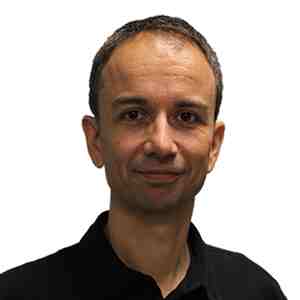
Isabelle Coupry
Researcher, CR / Inserm, Translational research on neurogenetic diseases (NRGEN), INCIA
cPr. Bertrand Mollereau is the head of the Apoptosis and Neurogenetics group at the Laboratory of Molecular Biology of the Cell at Ecole Normale Supérieure de Lyon (ENSL). In 1997, Dr. Mollereau received his Ph.D. on Immunology from the University of Paris XI in the laboratory of Anna Senik. He then conducted post-doctoral research with Dr. Claude Desplan in the Laboratory of Molecular Genetics at Rockefeller and New York Universities. In 2001, Dr. Mollereau was appointed Research Assistant Professor in the Strang Laboratory of Apoptosis and Cancer Biology under Dr. Hermann Steller at the Rockefeller University, USA. There, he obtained NIH grant support and headed a junior research group to study photoreceptor development and apoptosis in Drosophila. Dr. Mollereau joined the faculty as professor at the Ecole Normale Supérieure de Lyon in autumn 2006. In 2008, his group was awarded the ATIP (CNRS) and Fondation pour la Recherche Medical Equipe programmes. His group is interested in understanding the mechanism of cell death and pathophysiology of neurodegenerative diseases using Drosophila and mouse models.
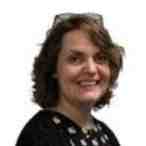
Christelle Durand
Research Engineer, University of Bordeaux, College of Health Science,
Translational research on neurogenetic diseases (NRGEN), INCIA
Translational research on neurogenetic diseases (NRGEN), INCIA
Ludivine Walter is an Assistant Professor at Claude Bernard Lyon 1 University. She received her Ph. D in Physiology, Nutrition and Physiopathology from Paris VII University under the mentorship of Pr Eric Fontaine. Immediately following her Ph. D, she completed a post doctoral training in Pr. Gyorgy Hajnoczky's lab at the Jefferson Medical School inm Philadelphia, USA. Subsequently, she started using model organism in Pr Sylvia Lee's lab at Cornell University, Ithaca, USA, where she was awarded a United Mitochondrial Disease Fellowship to work on mitochondria in aging processes in the nematode C. elegans. An ERG Marie Curie fellowship allowed to pursue her research in Hugo Aguilaniu's lab. She joined Bertrand Mollereau's lab in 2016 to study the role of the mitochondria in cell death and physiopathology. She teaches undergraduate and graduate classes in molecular biology and genetics.

Patricia Fergelot
University of Bordeaux, College of Health Science | CHU Bordeaux · Developmental Abnormalities and Malformative Syndromes Reference Centre, MD, PhD
Ludivine Walter is an Assistant Professor at Claude Bernard Lyon 1 University. She received her Ph. D in Physiology, Nutrition and Physiopathology from Paris VII University under the mentorship of Pr Eric Fontaine. Immediately following her Ph. D, she completed a post doctoral training in Pr. Gyorgy Hajnoczky's lab at the Jefferson Medical School inm Philadelphia, USA. Subsequently, she started using model organism in Pr Sylvia Lee's lab at Cornell University, Ithaca, USA, where she was awarded a United Mitochondrial Disease Fellowship to work on mitochondria in aging processes in the nematode C. elegans. An ERG Marie Curie fellowship allowed to pursue her research in Hugo Aguilaniu's lab. She joined Bertrand Mollereau's lab in 2016 to study the role of the mitochondria in cell death and physiopathology. She teaches undergraduate and graduate classes in molecular biology and genetics.

Cyril Goizet
Team Leader, PU-PH / University of Bordeaux, College of Health Science, Translational research on neurogenetic diseases (NRGEN), INCIA
Ludivine Walter is an Assistant Professor at Claude Bernard Lyon 1 University. She received her Ph. D in Physiology, Nutrition and Physiopathology from Paris VII University under the mentorship of Pr Eric Fontaine. Immediately following her Ph. D, she completed a post doctoral training in Pr. Gyorgy Hajnoczky's lab at the Jefferson Medical School inm Philadelphia, USA. Subsequently, she started using model organism in Pr Sylvia Lee's lab at Cornell University, Ithaca, USA, where she was awarded a United Mitochondrial Disease Fellowship to work on mitochondria in aging processes in the nematode C. elegans. An ERG Marie Curie fellowship allowed to pursue her research in Hugo Aguilaniu's lab. She joined Bertrand Mollereau's lab in 2016 to study the role of the mitochondria in cell death and physiopathology. She teaches undergraduate and graduate classes in molecular biology and genetics.

Jean-Paul Lasserre
MCU, University of Bordeaux, College of Health Science, Translational research on neurogenetic diseases (NRGEN), INCIA
Ludivine Walter is an Assistant Professor at Claude Bernard Lyon 1 University. She received her Ph. D in Physiology, Nutrition and Physiopathology from Paris VII University under the mentorship of Pr Eric Fontaine. Immediately following her Ph. D, she completed a post doctoral training in Pr. Gyorgy Hajnoczky's lab at the Jefferson Medical School inm Philadelphia, USA. Subsequently, she started using model organism in Pr Sylvia Lee's lab at Cornell University, Ithaca, USA, where she was awarded a United Mitochondrial Disease Fellowship to work on mitochondria in aging processes in the nematode C. elegans. An ERG Marie Curie fellowship allowed to pursue her research in Hugo Aguilaniu's lab. She joined Bertrand Mollereau's lab in 2016 to study the role of the mitochondria in cell death and physiopathology. She teaches undergraduate and graduate classes in molecular biology and genetics.

Giovanni Stevanin
Team Leader DR / Inserm / Translational research on neurogenetic diseases (NRGEN) , INCIA
Ludivine Walter is an Assistant Professor at Claude Bernard Lyon 1 University. She received her Ph. D in Physiology, Nutrition and Physiopathology from Paris VII University under the mentorship of Pr Eric Fontaine. Immediately following her Ph. D, she completed a post doctoral training in Pr. Gyorgy Hajnoczky's lab at the Jefferson Medical School inm Philadelphia, USA. Subsequently, she started using model organism in Pr Sylvia Lee's lab at Cornell University, Ithaca, USA, where she was awarded a United Mitochondrial Disease Fellowship to work on mitochondria in aging processes in the nematode C. elegans. An ERG Marie Curie fellowship allowed to pursue her research in Hugo Aguilaniu's lab. She joined Bertrand Mollereau's lab in 2016 to study the role of the mitochondria in cell death and physiopathology. She teaches undergraduate and graduate classes in molecular biology and genetics.
Provisional programme
Day One, Clinical and scientific program (in English)
Friday, May 17th, 2024
CHECK-IN
Check-in and coffee
9:00am - 9:20am

Isabelle Coste Chair-Woman of the association Autour du BPAN "Around BPAN"
Introduction
9:20am - 9:45am

Dr Mario Mauthe (Department Biomedical Sciences of Cells & Systems, Section Molecular Cell Biology, University of Groningen, Netherlands)
The role of WDR45 in autophagy and beyond
9:45am - 10:30am
Understanding the fundamentals of Supplemental Security Income (SSI), Social Security Disability Insurance (SSDI), Childhood Disabled Beneficiary Benefits (CDB), Medi-Cal, Medicare, Regional Center, and In Home Supportive Services (IHSS) is the critical first step for the professional to know how to properly plan for persons with disabilities and how to manage their personal and financial care during their lifetimes. This is the foundational program to all other programs. It is a must see for the beginner and an excellent refresher for the experienced professional.

Olivier Vincent (IIB, Madrid, Spain)
Objet de la presentation
11:45am - 12:15am
Understanding the fundamentals of Supplemental Security Income (SSI), Social Security Disability Insurance (SSDI), Childhood Disabled Beneficiary Benefits (CDB), Medi-Cal, Medicare, Regional Center, and In Home Supportive Services (IHSS) is the critical first step for the professional to know how to properly plan for persons with disabilities and how to manage their personal and financial care during their lifetimes. This is the foundational program to all other programs. It is a must see for the beginner and an excellent refresher for the experienced professional.
Coffee Break
10:30am - 11:00am

Dr Jean-Paul Lasserre (University of Bordeaux, INCIA, CNRS - UMR 5287, Bordeaux France)
The yeast Saccharomyces cerevisiae used as a tool and model in the pathology of BPAN
11:00am - 11:45pm
The WDR45 gene is localized on the X-chromosome and different variants in this gene are causative for the neurodegenerative disorder BPAN (ß-propeller protein associated neurodegeneration). WDR45/WIPI4 is a WD-repeat β-propeller protein that belongs to the WIPI (WD repeat domain, phosphoinositide interacting) family. The precise cellular function of WDR45 is still largely unknown, but deletions or variants in WDR45 can lead to macroautophagy/autophagy defects, malfunctioning mitochondria, endoplasmic reticulum stress and unbalanced iron homeostasis, suggesting that this protein functions in one or more pathways regulating directly or indirectly those processes. Our laboratory is studying the molecular functions of WDR45, particularly in autophagy and mitochondrial homeostasis, using a variety of cellular systems.

Marion Celle (Laboratory of Biology and Modelling of the Cell – CNRS : UMR5239, INSERM U2110, Université de Lyon, ENS de Lyon, UMS344 Biosciences Lyon Gerland - France)
Establishing a Drosophila model of BPAN disease
11:45am - 12:15am
Understanding the fundamentals of Supplemental Security Income (SSI), Social Security Disability Insurance (SSDI), Childhood Disabled Beneficiary Benefits (CDB), Medi-Cal, Medicare, Regional Center, and In Home Supportive Services (IHSS) is the critical first step for the professional to know how to properly plan for persons with disabilities and how to manage their personal and financial care during their lifetimes. This is the foundational program to all other programs. It is a must see for the beginner and an excellent refresher for the experienced professional.
Lunch Break restaurant "Le Family"
12:30pm – 2:30pm
12 Grand Maurian, 33000 Bordeaux

Autour du BPAN
Introduction
2:15pm - 2:30pm

Dr Marion Falabrègue (INSERM U1016, Institut Cochin, Institut National de la Santé et de la Recherche Médicale, Centre National de la Recherche Scientifique, Paris, France)
Study of the role of serotonin in the control of ferritinophagy and its therapeutic application to BPAN
2:30pm – 3:15pm
Understanding the fundamentals of Supplemental Security Income (SSI), Social Security Disability Insurance (SSDI), Childhood Disabled Beneficiary Benefits (CDB), Medi-Cal, Medicare, Regional Center, and In Home Supportive Services (IHSS) is the critical first step for the professional to know how to properly plan for persons with disabilities and how to manage their personal and financial care during their lifetimes. This is the foundational program to all other programs. It is a must see for the beginner and an excellent refresher for the experienced professional.

Dr Jose A Sánchez-Alcázar (Centro Andaluz de Biología del Desarrollo(CABD)-CSIC, Universidad Pablo de Olavide, Sevilla, Spain)
Antioxidants prevent iron accumulation and lipid peroxidation, but do not correct autophagy dysfunction or mitochondrial bioenergetics in cellular models of BPAN
3:15pm – 4:00pm
Understanding the fundamentals of Supplemental Security Income (SSI), Social Security Disability Insurance (SSDI), Childhood Disabled Beneficiary Benefits (CDB), Medi-Cal, Medicare, Regional Center, and In Home Supportive Services (IHSS) is the critical first step for the professional to know how to properly plan for persons with disabilities and how to manage their personal and financial care during their lifetimes. This is the foundational program to all other programs. It is a must see for the beginner and an excellent refresher for the experienced professional.
Coffee Break
4:00pm – 4:30pm

Pr Apostolos Papandreou (Laboratory for molecular cell biology, Cell signalling and autophagy, London, (United Kingdom)
Cardiac glycosides that restores autophagy flux in an iPSC-derived neuronal model of WDR45 deficiency?
4:30pm – 5:15pm
Understanding the fundamentals of Supplemental Security Income (SSI), Social Security Disability Insurance (SSDI), Childhood Disabled Beneficiary Benefits (CDB), Medi-Cal, Medicare, Regional Center, and In Home Supportive Services (IHSS) is the critical first step for the professional to know how to properly plan for persons with disabilities and how to manage their personal and financial care during their lifetimes. This is the foundational program to all other programs. It is a must see for the beginner and an excellent refresher for the experienced professional.
Film "Ensemble" (Together)
Objet de la presentation
4:30pm - 4:50pm
Understanding the fundamentals of Supplemental Security Income (SSI), Social Security Disability Insurance (SSDI), Childhood Disabled Beneficiary Benefits (CDB), Medi-Cal, Medicare, Regional Center, and In Home Supportive Services (IHSS) is the critical first step for the professional to know how to properly plan for persons with disabilities and how to manage their personal and financial care during their lifetimes. This is the foundational program to all other programs. It is a must see for the beginner and an excellent refresher for the experienced professional.
Laboratory visit
Objet de la presentation
5:00pm - 6:15pm
Understanding the fundamentals of Supplemental Security Income (SSI), Social Security Disability Insurance (SSDI), Childhood Disabled Beneficiary Benefits (CDB), Medi-Cal, Medicare, Regional Center, and In Home Supportive Services (IHSS) is the critical first step for the professional to know how to properly plan for persons with disabilities and how to manage their personal and financial care during their lifetimes. This is the foundational program to all other programs. It is a must see for the beginner and an excellent refresher for the experienced professional.

To Be Announced
Objet de la presentation
5:45pm – 6:15pm
Understanding the fundamentals of Supplemental Security Income (SSI), Social Security Disability Insurance (SSDI), Childhood Disabled Beneficiary Benefits (CDB), Medi-Cal, Medicare, Regional Center, and In Home Supportive Services (IHSS) is the critical first step for the professional to know how to properly plan for persons with disabilities and how to manage their personal and financial care during their lifetimes. This is the foundational program to all other programs. It is a must see for the beginner and an excellent refresher for the experienced professional.
End of first day
06:15pm
Gala Evening
barge ride on the Gironde
7:30pm
General discussion
Understanding the fundamentals of Supplemental Security Income (SSI), Social Security Disability Insurance (SSDI), Childhood Disabled Beneficiary Benefits (CDB), Medi-Cal, Medicare, Regional Center, and In Home Supportive Services (IHSS) is the critical first step for the professional to know how to properly plan for persons with disabilities and how to manage their personal and financial care during their lifetimes. This is the foundational program to all other programs. It is a must see for the beginner and an excellent refresher for the experienced professional.
Dinner on the barge at the dock
Day Two, Families program (in French)
Saturday, May 18th, 2024
CHECK-IN
Check-in and Coffee
8:15am - 8:35am

Isabelle Coste (Chair-Woman of the association Autour du BPAN "Around BPAN")
Introduction
8:35am - 8:55am
Understanding the fundamentals of Supplemental Security Income (SSI), Social Security Disability Insurance (SSDI), Childhood Disabled Beneficiary Benefits (CDB), Medi-Cal, Medicare, Regional Center, and In Home Supportive Services (IHSS) is the critical first step for the professional to know how to properly plan for persons with disabilities and how to manage their personal and financial care during their lifetimes. This is the foundational program to all other programs. It is a must see for the beginner and an excellent refresher for the experienced professional.
Research (in French)

Sahra Aniorte (Laboratory of Biology and Modelling of the Cell – CNRS : UMR5239, INSERM U2110, Université de Lyon, ENS de Lyon, UMS344 Biosciences Lyon Gerland - France)
The Role of Autophagy in the Epileptic Phenotype of the BPAN Model in Drosophila
8:55am - 9:20am
Understanding the fundamentals of Supplemental Security Income (SSI), Social Security Disability Insurance (SSDI), Childhood Disabled Beneficiary Benefits (CDB), Medi-Cal, Medicare, Regional Center, and In Home Supportive Services (IHSS) is the critical first step for the professional to know how to properly plan for persons with disabilities and how to manage their personal and financial care during their lifetimes. This is the foundational program to all other programs. It is a must see for the beginner and an excellent refresher for the experienced professional.

Dr Marion Falabrègue (INSERM U1016, Institut Cochin, Institut National de la Santé et de la Recherche Médicale, Centre National de la Recherche Scientifique, Paris, France)
Study of the role of serotonin in the control of ferritinophagy and its
therapeutic application to BPAN
therapeutic application to BPAN
9:20am - 9:45am
Understanding the fundamentals of Supplemental Security Income (SSI), Social Security Disability Insurance (SSDI), Childhood Disabled Beneficiary Benefits (CDB), Medi-Cal, Medicare, Regional Center, and In Home Supportive Services (IHSS) is the critical first step for the professional to know how to properly plan for persons with disabilities and how to manage their personal and financial care during their lifetimes. This is the foundational program to all other programs. It is a must see for the beginner and an excellent refresher for the experienced professional.

Dr Jean-Paul Lasserre (Université de Bordeaux, INCIA, CNRS - UMR 5287, Bordeaux, France)
The yeast Saccharomyces cerevisiae used as a tool and model in BPAN pathology
9:45am - 10:10am
Understanding the fundamentals of Supplemental Security Income (SSI), Social Security Disability Insurance (SSDI), Childhood Disabled Beneficiary Benefits (CDB), Medi-Cal, Medicare, Regional Center, and In Home Supportive Services (IHSS) is the critical first step for the professional to know how to properly plan for persons with disabilities and how to manage their personal and financial care during their lifetimes. This is the foundational program to all other programs. It is a must see for the beginner and an excellent refresher for the experienced professional.
Coffee Break
10:10am - 10:40am
REP-BPAN Project
10:40am – 11:15am

Pr Gaetan Lesca (Institut NeuroMyoGene PNMG, CNRS UMR5310, INSERM U1217, Université Claude Bernard Lyon 1,Lyon, France)
Understanding the fundamentals of Supplemental Security Income (SSI), Social Security Disability Insurance (SSDI), Childhood Disabled Beneficiary Benefits (CDB), Medi-Cal, Medicare, Regional Center, and In Home Supportive Services (IHSS) is the critical first step for the professional to know how to properly plan for persons with disabilities and how to manage their personal and financial care during their lifetimes. This is the foundational program to all other programs. It is a must see for the beginner and an excellent refresher for the experienced professional.

Dr Anaïs Beaumont (Institut NeuroMyoGene PNMG, CNRS UMR5310, INSERM U1217, Université Claude Bernard Lyon 1,Lyon, France)
Understanding the fundamentals of Supplemental Security Income (SSI), Social Security Disability Insurance (SSDI), Childhood Disabled Beneficiary Benefits (CDB), Medi-Cal, Medicare, Regional Center, and In Home Supportive Services (IHSS) is the critical first step for the professional to know how to properly plan for persons with disabilities and how to manage their personal and financial care during their lifetimes. This is the foundational program to all other programs. It is a must see for the beginner and an excellent refresher for the experienced professional.
BPAN : Clinical Presentation & Disease Management News (in French)
10:15am – 11:50am
Lunch on your ownf
12:30pm – 2:00pm

Pr Gaetan Lesca (Institut NeuroMyoGene PNMG, CNRS UMR5310, INSERM U1217, Université Claude Bernard Lyon 1,Lyon, France)
Understanding the fundamentals of Supplemental Security Income (SSI), Social Security Disability Insurance (SSDI), Childhood Disabled Beneficiary Benefits (CDB), Medi-Cal, Medicare, Regional Center, and In Home Supportive Services (IHSS) is the critical first step for the professional to know how to properly plan for persons with disabilities and how to manage their personal and financial care during their lifetimes. This is the foundational program to all other programs. It is a must see for the beginner and an excellent refresher for the experienced professional.

Alexandra Benchoua/Joanna Tournois (I-Stem, Evry, France)
Objet de la presentation
11:30am – 12:00am
Understanding the fundamentals of Supplemental Security Income (SSI), Social Security Disability Insurance (SSDI), Childhood Disabled Beneficiary Benefits (CDB), Medi-Cal, Medicare, Regional Center, and In Home Supportive Services (IHSS) is the critical first step for the professional to know how to properly plan for persons with disabilities and how to manage their personal and financial care during their lifetimes. This is the foundational program to all other programs. It is a must see for the beginner and an excellent refresher for the experienced professional.
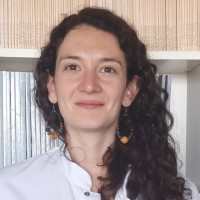
Dr Chloé Angelini (Neurogenetic Reference Center, Medical Genetics Department, Bordeaux University Hospital, Bordeaux, France)
Understanding the fundamentals of Supplemental Security Income (SSI), Social Security Disability Insurance (SSDI), Childhood Disabled Beneficiary Benefits (CDB), Medi-Cal, Medicare, Regional Center, and In Home Supportive Services (IHSS) is the critical first step for the professional to know how to properly plan for persons with disabilities and how to manage their personal and financial care during their lifetimes. This is the foundational program to all other programs. It is a must see for the beginner and an excellent refresher for the experienced professional.
Laboratory visit
General discussion
11:50am – 12:20pm
Understanding the fundamentals of Supplemental Security Income (SSI), Social Security Disability Insurance (SSDI), Childhood Disabled Beneficiary Benefits (CDB), Medi-Cal, Medicare, Regional Center, and In Home Supportive Services (IHSS) is the critical first step for the professional to know how to properly plan for persons with disabilities and how to manage their personal and financial care during their lifetimes. This is the foundational program to all other programs. It is a must see for the beginner and an excellent refresher for the experienced professional.
End of meeting
12:20pm
Country Meal
Registration
Registration rate
Registration for this year's symposium costs 45.00€ for the first day, optionnaly 50.00€ for the gala diner (valid only for people registered on the first day) and 12.00€ for the second day (price in euros) for all.
Registration must be done online. Registration until May 3th.
Payments can be made online by card (Mastercard/VISA), PayPal, by bank transfers or cheque after etablishing a purchase order using the registration form that will be below.
Registration for this year's symposium costs 45.00€ for the first day, optionnaly 50.00€ for the gala diner (valid only for people registered on the first day) and 12.00€ for the second day (price in euros) for all.
Registration must be done online. Registration until May 3th.
Payments can be made online by card (Mastercard/VISA), PayPal, by bank transfers or cheque after etablishing a purchase order using the registration form that will be below.
Step One: Verify your identity. To access the registration form, you must enter a valid email. A verification code will be sent to this email.
Step Two: Complete the form below to order.
Step Tree: Choose your payment method.
Direct payment: By paypal or Credit Cards
Place Order: Your can download this purchase order - payment can be made by bank transfer or bank check before April 29th
Generate the purchase Order
Registration from 26 March 2024.
Registration is closed.
Information
Please fill the form below for more informations on the program and registration.
Extended abstract deadline submission April 11th
Extended abstract deadline submission April 11th
Access map
The symposium will take place in the Bâtiment Bordeaux Biologie Santé (BBS), on the University of Bordeaux, located 2, rue Dr Hoffmann Martinot 33000 Bordeaux.

FROM BORDEAUX AIRPORT (50 to 60 minutes)
1. At the Airport stop, take the Liane 1 towards Quinconces
2. Get off at the Lycées de Mérignac stop.
3. At the Lycées de Mérignac stop, take Tramway Line A towards La Gardette - Bassens - Carbon-Blanc
4. Get off at Saint Augustin stop. (See the walking route from this stop on the proximity maps below).
1. At the Airport stop, take the Liane 1 towards Quinconces
2. Get off at the Lycées de Mérignac stop.
3. At the Lycées de Mérignac stop, take Tramway Line A towards La Gardette - Bassens - Carbon-Blanc
4. Get off at Saint Augustin stop. (See the walking route from this stop on the proximity maps below).

FROM THE TRAIN STATION (GARE SAINT JEAN) (15 TO 20 MINUTES)
Take Tramway Line C direction Les Aubiers to the Porte de Bourgogne stop; Take Tramway Line A direction Mérignac Centre,
Get off at the Saint Augustin stop. (See the walking route from this stop on the proximity maps below)
Take Tramway Line C direction Les Aubiers to the Porte de Bourgogne stop; Take Tramway Line A direction Mérignac Centre,
Get off at the Saint Augustin stop. (See the walking route from this stop on the proximity maps below)

BY CAR, FROM PARIS:
1. Follow the direction: BORDEAUX-CENTRE / GARE SAINT-JEAN, then BOULEVARDS,
2. Pass the barriers of Bègles, Toulouse, St Genès and Pessac,
3. Then follow signs for Université Bordeaux 2 (on the left).
BY CAR, FROM TOULOUSE:
1. Follow the direction: BASSIN D'ARCACHON / MÉRIGNAC / PESSAC / VILLENAVE-D'ORNON,
2. Exit at exit n°16, then follow the direction TALENCE-CENTRE / DOMAINE UNIVERSITAIRE,
3. Arrived on the Boulevards follow (left) CHU Pellegrin and pass the barriers of St Genès, then Pessac, then follow University Bordeaux 2 (on the left).
1. Follow the direction: BORDEAUX-CENTRE / GARE SAINT-JEAN, then BOULEVARDS,
2. Pass the barriers of Bègles, Toulouse, St Genès and Pessac,
3. Then follow signs for Université Bordeaux 2 (on the left).
BY CAR, FROM TOULOUSE:
1. Follow the direction: BASSIN D'ARCACHON / MÉRIGNAC / PESSAC / VILLENAVE-D'ORNON,
2. Exit at exit n°16, then follow the direction TALENCE-CENTRE / DOMAINE UNIVERSITAIRE,
3. Arrived on the Boulevards follow (left) CHU Pellegrin and pass the barriers of St Genès, then Pessac, then follow University Bordeaux 2 (on the left).
The partners of this event
